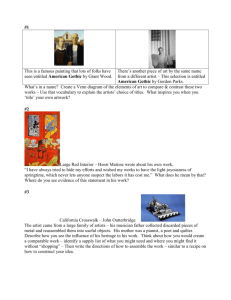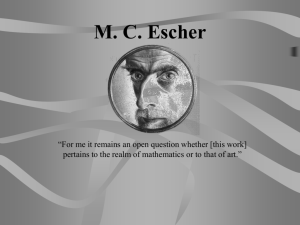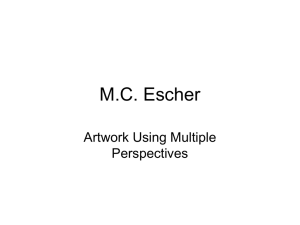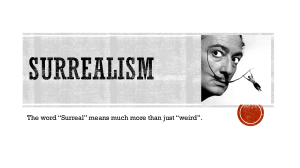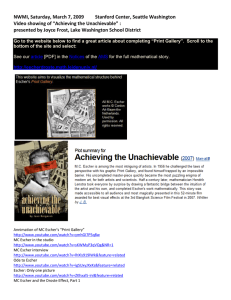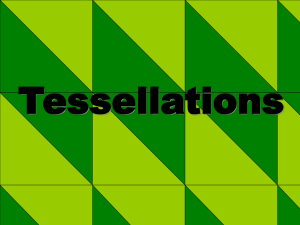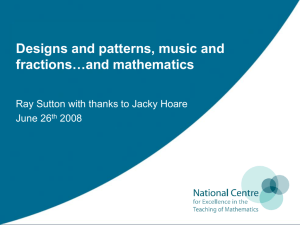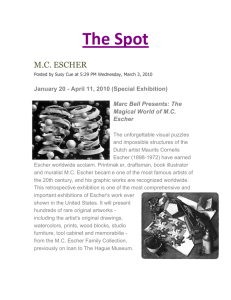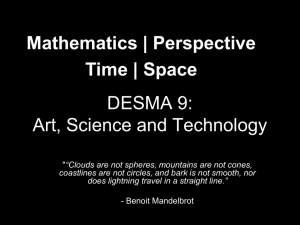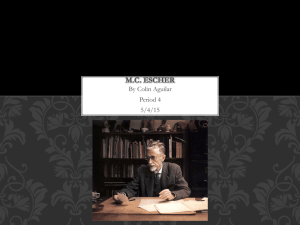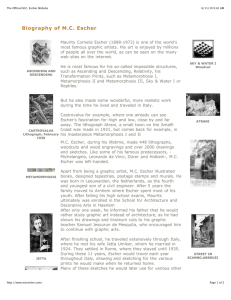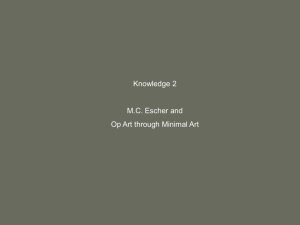M.C. Escher
advertisement
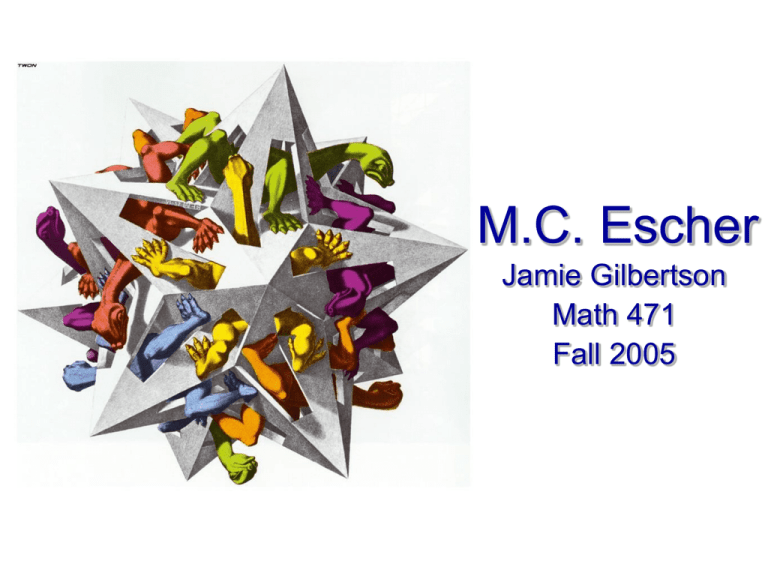
M.C. Escher Jamie Gilbertson Math 471 Fall 2005 Background Full name: Maurits Cornelis Escher Born in Leeuwarden, Holland on June 17,1898 Entered secondary school in 1912 where he did not enjoy mathematics, but he liked art class. “I was extremely poor at arithmetic and algebra because I had, and still have, great difficulty with the abstractions of numbers and letters. When, later, in stereometry [solid geometry], an appeal was made to my imagination . . . but in school I never excelled in that subject” -M.C. Escher His Start in Art Traveled to Italy and began drawing sketches of the trees and vistas. Fascinated with structure and light Paid careful attention to details of the roof shingles and the cobblestone path ways Geometry and Tessellations His attraction to plane geometry began to grow. Visited the Alhambra and became very influenced by the Moor Civilization Constructed tessellations using interlocking polygons. Though the Moor Civilization was forbidden from using living creatures in their art, Escher took a great interest in using these figures Used mainly birds, lions, and fish Uses of Symmetry Translation Rotation Reflection Glide-Reflection Translation & Rotation Translation Rotation Reflection & Glide-Reflection Reflection Glide-Reflection Putting it all Together Used a fading technique to blend objects together. Constructed the famous Metamorphose series. Metamorphose I Infinity Became fascinated with the concept of infinity and began reflecting this into his art. The Possible Impossibilities Began constructing art that defied that natural laws of human nature 3 The Waterfall Belvedere Relativity “What pathetic slaves we turn out to be of gravity’s dominant power over everything on earth. And then the right angle between the horizontal and the vertical! Almost everything we construct … are all right-angled boxes. They really are dreadfully boring and annoying.” -M.C. Escher The Possible Impossibilities With his fascination of infinity, he created two never ending illustrations: – Drawing Hands – Möbius Strip Drawing Hands Möbius Strip II "An endless ring-shaped band usually has two distinct surfaces, one inside and one outside. Yet on this strip nine red ants crawl after each other and travel the front side as well as the reverse side. Therefore the strip has only one surface." -M.C. Escher In the End In the late 1960s, his health became very poor. Continued to complete his mathematical creations into his later days. Died in March of 1972 Works Cited Visions of Symmetry by Doris Schattschneider © 1990 The Official M.C. Escher Website www.mcescher.com The Geometry Center
